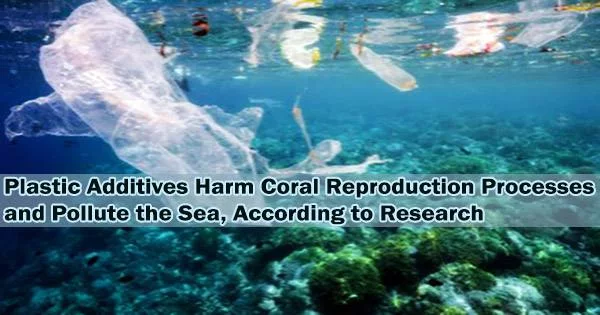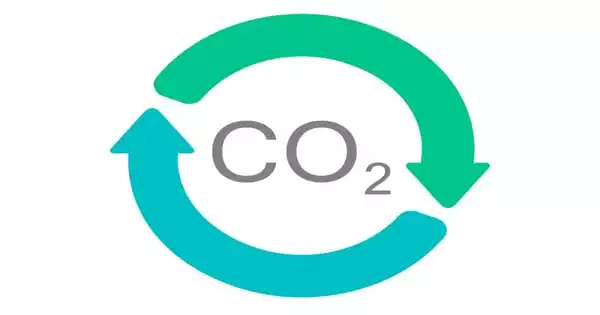The influence of plastic additives on the reproductive process and larval development of corals and other commonly found animals in the coral reef of Eilat was the subject of a recent study conducted by Tel Aviv University and the Interuniversity Institute for Marine Sciences in Eilat.
Chemicals known to affect the endocrine system are frequently used as plastic additives, which are substances that are added to plastic products during manufacture. According to the current study, these compounds can have species-specific impacts that could harm coral reefs’ population dynamics and biodiversity.
The study was led by Ph.D. student Gal Vered of the Interuniversity Institute for Marine Sciences in Eilat and Tel Aviv University, and Prof. Noa Shenkar of Tel Aviv University’s School of Zoology in the Wise Faculty of Life Sciences and the Steinhardt Museum of Natural History. The study was published in the journal Environmental Pollution.
The researchers focused on four organisms: a lone ascidian, a fire coral, a soft coral, and a stony coral. These organisms are crucial to the ecology of tropical coral reefs, and harm to their growth and reproduction may have an impact on the community structure of the reef.
The researchers also looked at four chemical additives that are frequently used in plastic items and have been discovered in tropical regions with coral reefs in the ocean. Two of these were phthalate chemicals, which are present in a wide range of consumer goods like food packaging, toys, medical equipment, and adhesives and are used to soften and increase the flexibility of various forms of plastic.
The other two were bisphenol A, which is present in polycarbonate plastic, which is used to make infant bottles, boxes, and packaging for food and beverages, as well as a stabilizer in plastic packaging and as an addition in cleaning products. Based on data from laboratory animals, the European Chemicals Agency has designated bisphenol A as a chemical that may harm human reproduction.
Climate change, ocean acidification, and ongoing anthropogenic stressors place coral reefs at existential risk. Most of the coral reefs in the world are found in developing countries where the human population is expanding rapidly and waste management is lacking. Steps towards preventing plastic waste from reaching the environment include proper local waste management that reduces transportation of waste, and sustainable consumption of products regulated for additives.
Gal Vered
Gal Vered explains: “Plastic additives are chemical additives that are incorporated into plastic products during the manufacturing process. These substances reach marine environments through plastic waste and wastewater. Some of them are known to activate or suppress hormonal processes, and can therefore disrupt biological systems.”
“However, their effects on organisms in coral reefs have hardly been studied. The structure of the coral reef population depends on the success of the reproduction, development and settlement of corals and other reef organisms. Interference with their hormonal systems may affect the chances of success of these processes, and an uneven effect on the different species may lead to a change in the community’s structure and damage to the entire system.”
The effects of the plastic additions were investigated in a series of exposure trials by the researchers at higher laboratory doses as well as environmentally relevant amounts in seawater. Larval development, survival, settlement, and metamorphoses were among the factors that were measured.
While 4-nonylphenol was found to negatively affect all of the tested animals’ settlement, development, and fertilization at environmentally relevant concentrations, it was found to positively affect larvae settling in soft coral.
Only the settling of the stony coral larvae was harmed by the greater laboratory concentration of one of the tested phthalate compounds; the other organisms’ reproductive products were unaffected. These findings contribute to the growing body of information showing that various species are affected differently by plastic pollution.
Prof. Shenkar: “Our findings demonstrate plastic additives’ negative and selective effects on the development and reproduction of coral reef organisms. The environmentally-relevant concentrations used in our experiments were concentrations found in seawater; alarmingly, some had deleterious effects on organisms’ reproduction.”
“Nevertheless, concentration within organisms’ tissues may reach higher levels as these compounds can potentially bioaccumulate. To better understand the impact of plastic additives on this endangered ecosystem, we suggest developing better methods for measuring the actual concentrations within the tissues of the organisms to produce relevant risk assessments.”
Gal Vered: “Climate change, ocean acidification, and ongoing anthropogenic stressors place coral reefs at existential risk. Most of the coral reefs in the world are found in developing countries where the human population is expanding rapidly and waste management is lacking. Steps towards preventing plastic waste from reaching the environment include proper local waste management that reduces transportation of waste, and sustainable consumption of products regulated for additives.”
The researchers conclude: “We emphasize the importance of proper waste management that will reduce the presence of plastic waste from reaching the marine environment, as well as the need for methods to measure the concentration of chemicals inside the bodies of organisms, in order to assess the possible risk to their reproductive and developmental processes.”
















